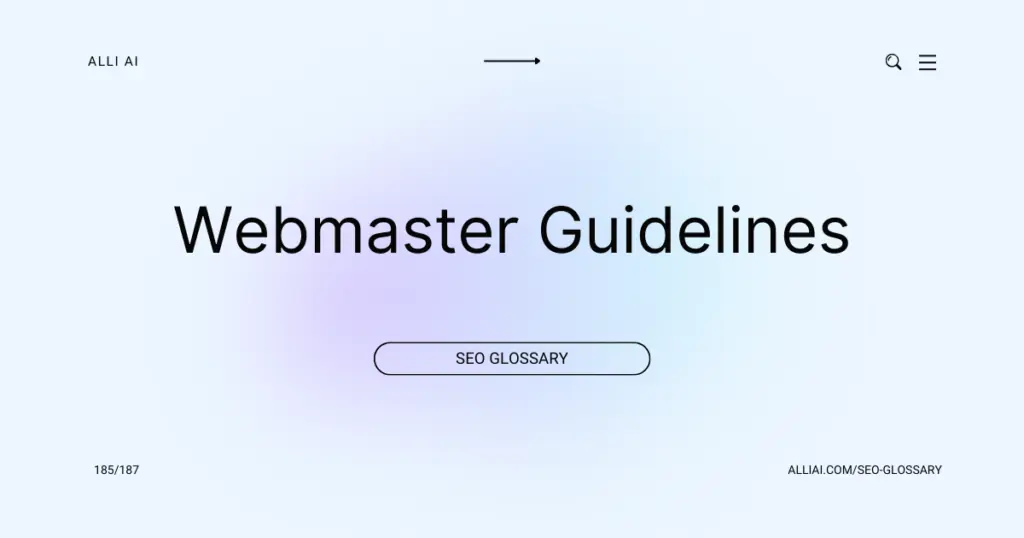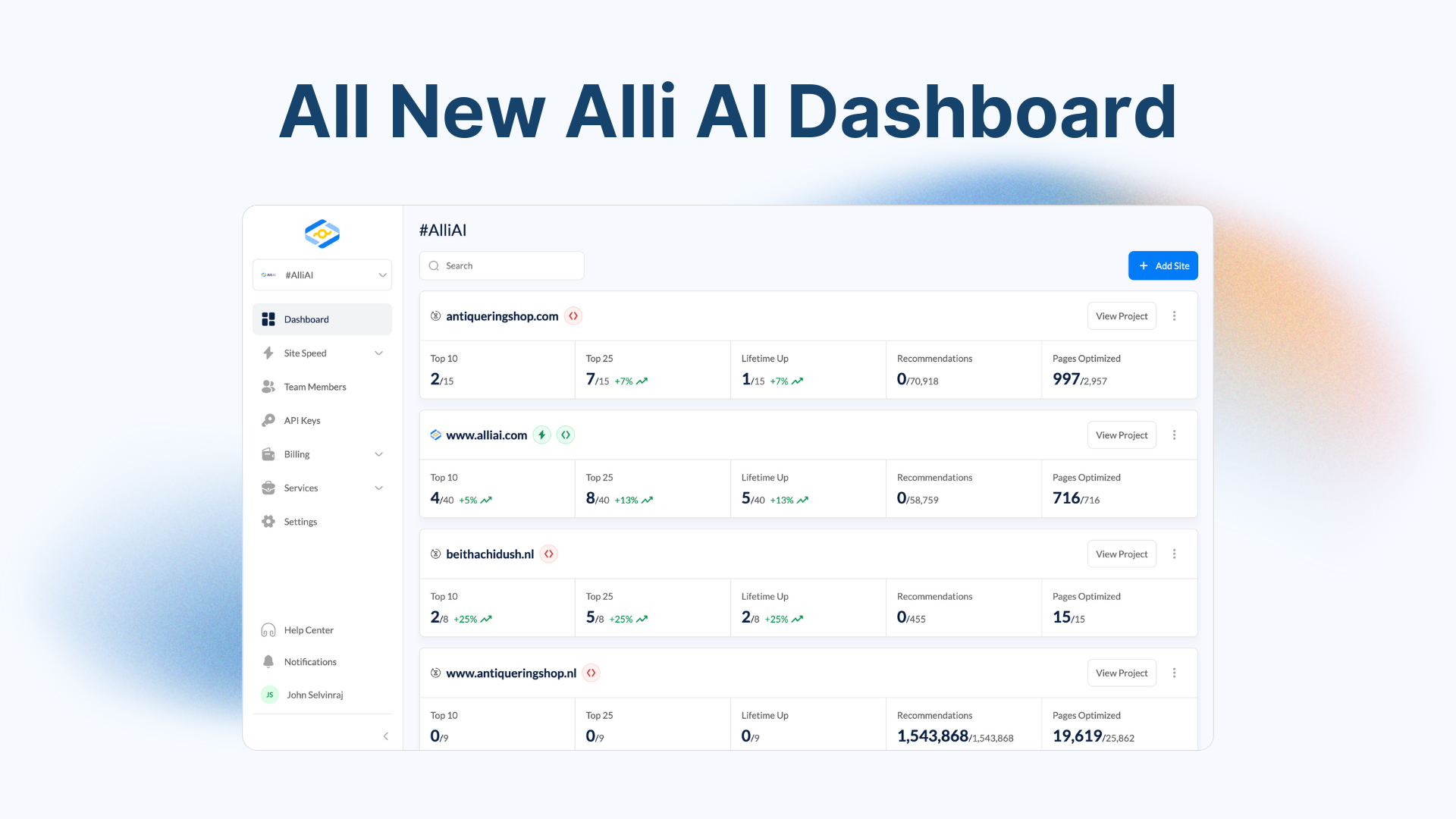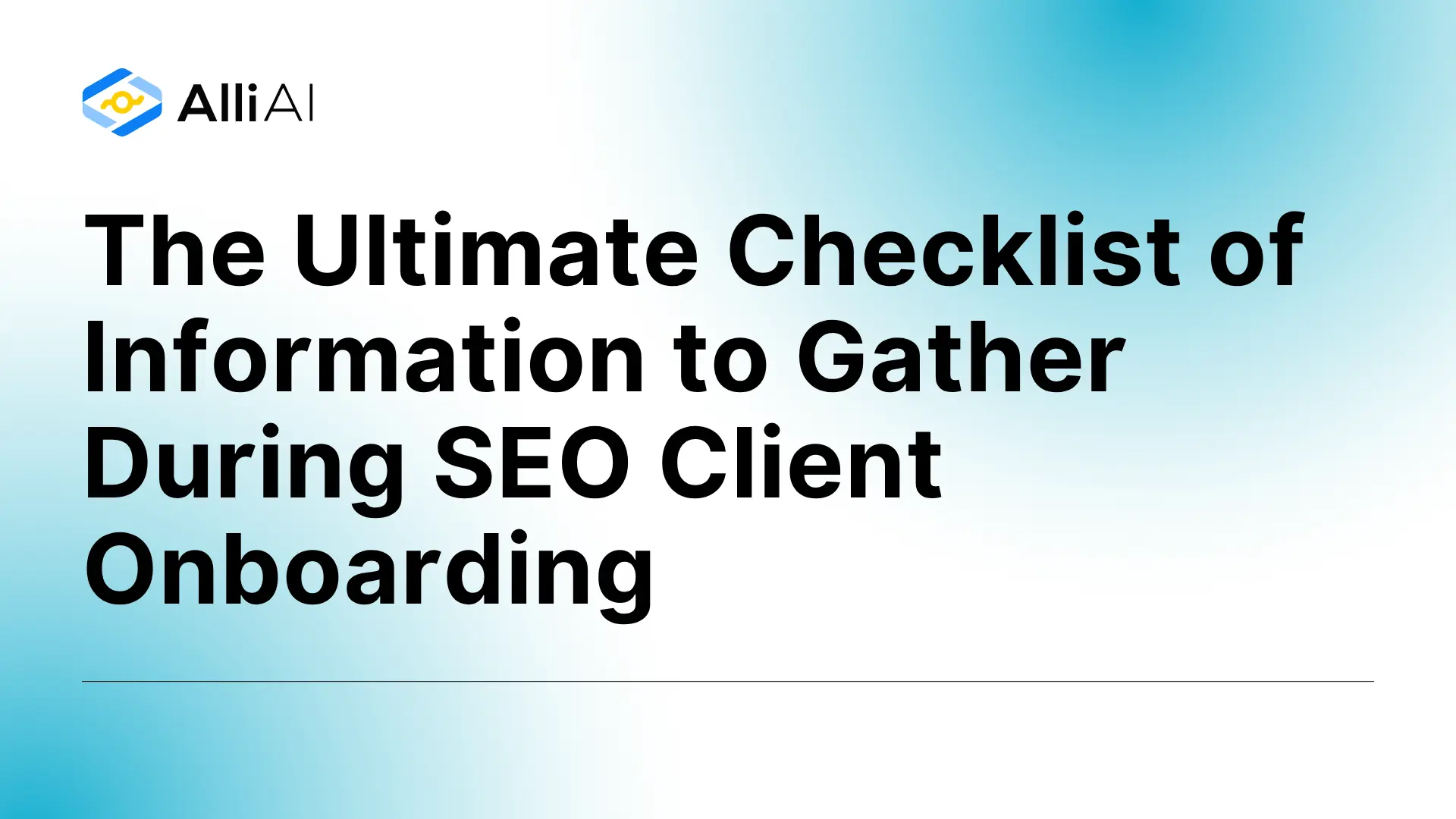What Does Webmaster Guidelines Mean?
The Webmaster Guidelines are a set of recommendations provided by search engines like Google to help website owners understand what the search engine considers to be best practices. These guidelines aim to educate webmasters on how to create websites that are both user-friendly and optimized for search engines, which can help improve the website’s search engine rankings. They cover everything from technical specifications and proper design to quality content creation and ethical SEO strategies.
Where Does Webmaster Guidelines Fit Into The Broader SEO Landscape?
Webmaster Guidelines, provided by search engines like Google and Bing, offer a set of best practices for website owners and developers. These guidelines are integral to SEO as they outline the dos and don’ts designed to help improve site rank and visibility. Adhering to these guidelines ensures that a site is accessible to search engines and prevents the site from being penalized for engaging in deceptive practices. The guidelines cover technical aspects, content quality, and link-building strategies, establishing a foundation for ethical SEO by emphasizing user experience, relevance, and transparency.
Real Life Analogies or Metaphors to Explain Webmaster Guidelines
1. Webmaster Guidelines as a Cookbook Recipe: Just as a cookbook provides you with step-by-step instructions to prepare a dish correctly and ensure it tastes good, the Webmaster Guidelines offer detailed instructions to help you create a website that is appealing, easy to navigate, and favored by search engines.
2. Traffic Rules for the Internet: Think of Webmaster Guidelines as the traffic laws for navigating the internet. Just as drivers must follow specific rules to ensure safety and order on the roads, these guidelines help maintain a structured and safe digital environment, ensuring all websites play fair to gain visibility.
3. Building Codes for Online Real Estate: If constructing a building requires adherence to specific building codes to ensure safety and compliance, similarly, building a website requires following Webmaster Guidelines to ensure it is accessible, usable, and search engine friendly.
4. Gardening Rules for Optimal Growth: Imagine the Webmaster Guidelines as a gardener’s guidebook. Just as the guidebook would advise on the right soil, season, and care for planting, these guidelines advise on the best practices for website health and growth, ensuring your site stays robust and visible in the competitive online landscape.
5. Coach’s Playbook in Sports: In sports, a coach’s playbook contains strategies and plays that help the team win. Similarly, the Webmaster Guidelines provide strategies and best practices to help your website succeed in the competitive field of search rankings.
How the Webmaster Guidelines Functions or is Implemented?
1. Google’s Webmaster Guidelines – Comprehensive norms offered by Google on best practices for website creation and management.
2. Content Guidelines:
– Create unique, accurate, and relevant content.
– Avoid auto-generated content.
– Make primary content easily accessible.
– Prohibit participation in link schemes.
3. Technical Guidelines:
– Ensure the website is crawlable.
– Use supported technologies and avoid those that impede crawlers.
– Optimize mobile usability.
– Speed up page load times.
4. Quality Guidelines:
– Basic principles advocate for user-focused content creation versus manipulation for better search rankings.
– Specific tactics to avoid include cloaking, sneaky redirects, and hidden texts or links.
5. Implementation Mechanism:
– Google uses algorithms and manual reviews to enforce these guidelines.
– Detection of non-compliance can lead to penalties, including reduced search visibility or removal from search results.
6. Recovery and Reconsideration:
– Webmasters can request a reconsideration review after addressing the violations.
Impact Webmaster Guidelines has on SEO
Adhering to Webmaster Guidelines impacts SEO performance by ensuring that websites adhere to practices that search engines favor, thus improving search rankings. These guidelines discourage manipulative techniques and promote high-quality content, directly affecting how a site is indexed and ranked. Compliance enhances user experience by encouraging clear navigation and accessible design, factors that search engines account for when determining rankings. Ignoring these guidelines can lead to penalties or exclusion from search results, negatively impacting visibility and traffic.
SEO Best Practices For Webmaster Guidelines
1. Ensure that all pages have unique and accurate page titles that reflect the content of the page.
2. Utilize the “description” meta tag by crafting a concise explanation of the page’s content, making sure to include relevant keywords for your content.
3. Improve the structure of your URLs by making them easy to understand for both users and search engines, keeping them short and relevant to the page topic.
4. Make your site easier to navigate by organizing your content structure and including clear links to the important pages.
5. Offer quality content and services by writing easy-to-read text, staying organized around the topic, and ensuring the content is relevant and desired by your audience.
6. Optimize your images by using descriptive file names, alt tags, and utilizing image sitemaps.
7. Make effective use of headers (H1, H2, H3) to organize content clearly and efficiently.
8. Optimize your site’s loading speed by compressing images, leveraging browser caching, and improving server response times.
9. Make sure your website is mobile-friendly, considering design, structure, page speed, and more.
10. Promote your website in a manner that naturally attracts inbound links from reputable sources.
11. Use robot.txt files and tags including “noindex” and “nofollow” wisely to manage what content you want indexed or followed by search engines.
12. Regularly monitor your site for hacking and remove any malware as soon as it is detected.
13. Keep track of your site’s performance and gather visitor insights through tools like Google Analytics and Google Search Console.
14. Stay compliant with Webmaster Guidelines by avoiding tricks intended to improve search engine rankings and focus on creating value for your visitors.
15. Regularly update your website with new and relevant content to engage and attract both new and returning visitors.
Common Mistakes To Avoid
1. Keyword Stuffing: Overloading keywords on your web pages can lead to penalties. Use keywords naturally within content.
2. Hidden Text or Links: Avoid using text or links that are the same color as the background or positioned off-screen to manipulate rankings.
3. Cloaking: Presenting different content to search engines than to users is deceptive and against guidelines. Ensure all users see the same content.
4. Sneaky Redirects: Redirecting users to a different page than the one indexed by search engines can be misleading. Use redirects appropriately.
5. Duplicate Content: Do not deliberately duplicate content across your website. Implement canonical tags to show original sources.
6. Link Schemes: Avoid buying or selling links that pass PageRank. Engage in legitimate link-building practices like creating quality content that naturally attracts links.
7. Automatically Generated Content: Do not use software to generate content without value. Ensure all published content is meaningful and useful.
8. Malware or Harmful Behavior: Keep your website secure and do not use it to host or distribute malware. Regularly update your CMS and plugins.
9. Rich Snippet Markup Abuse: Do not use structured data markup untruthfully or misleadingly. Only mark up content that is visible to people.
10. Low-Quality Content: Avoid producing mass-produced or thin content with little or no added value. Focus on creating detailed and unique content.
11. Abusing Structured Data Guidelines: Manipulating structured data to mislead users or enhance search appearance deceptively can result in penalties.
12. Scraping Content: Do not copy and republish content from other sites without adding significant value. Always aim for originality or use syndication appropriately.
By adhering strictly to these guidelines, avoiding shortcuts, and focusing on creating genuine value, websites can maintain a good standing with search engines while improving their user experience.






